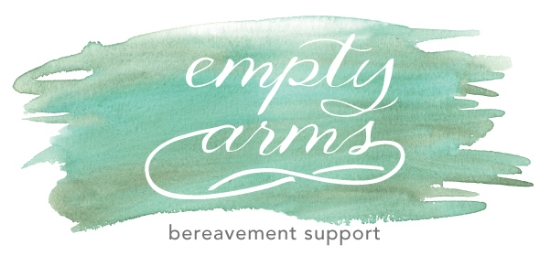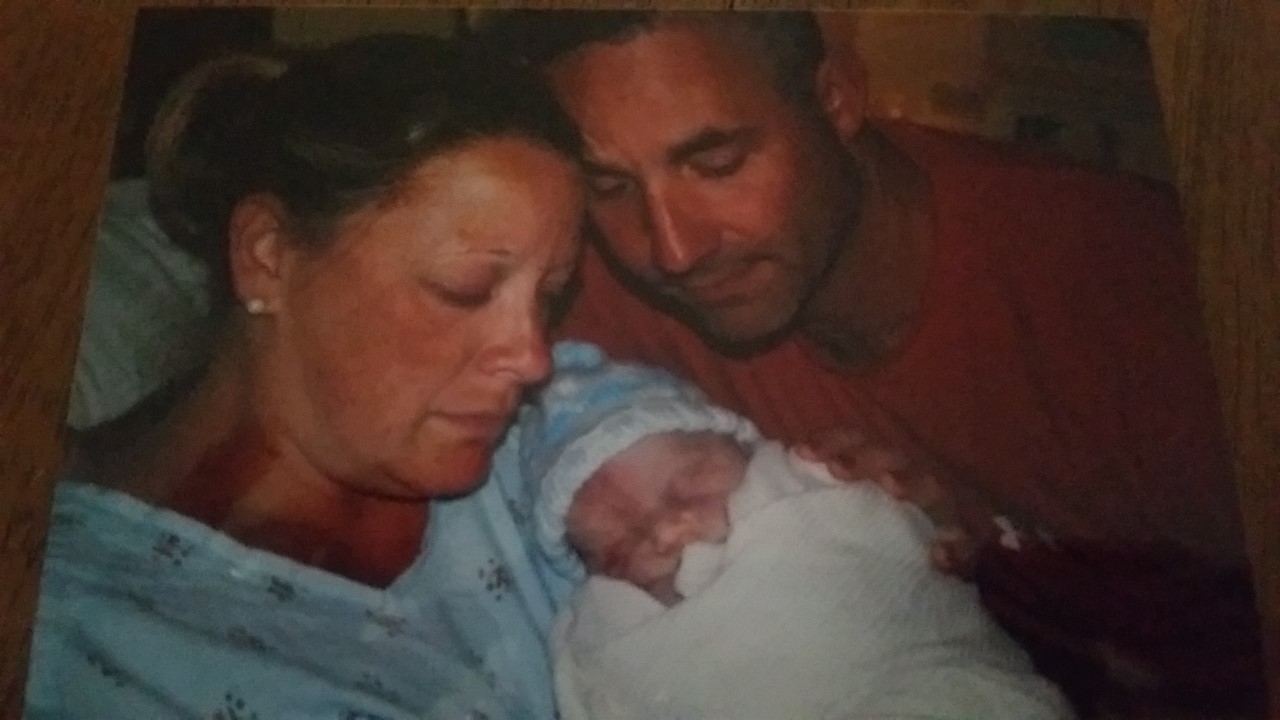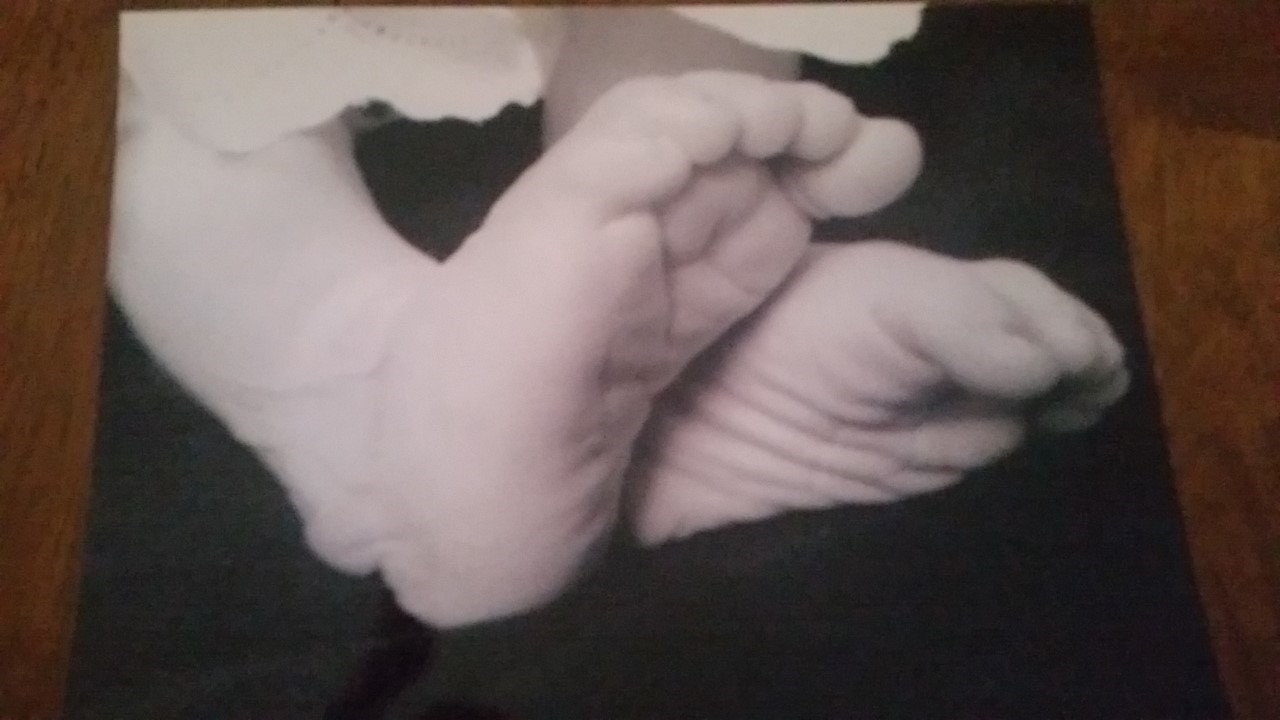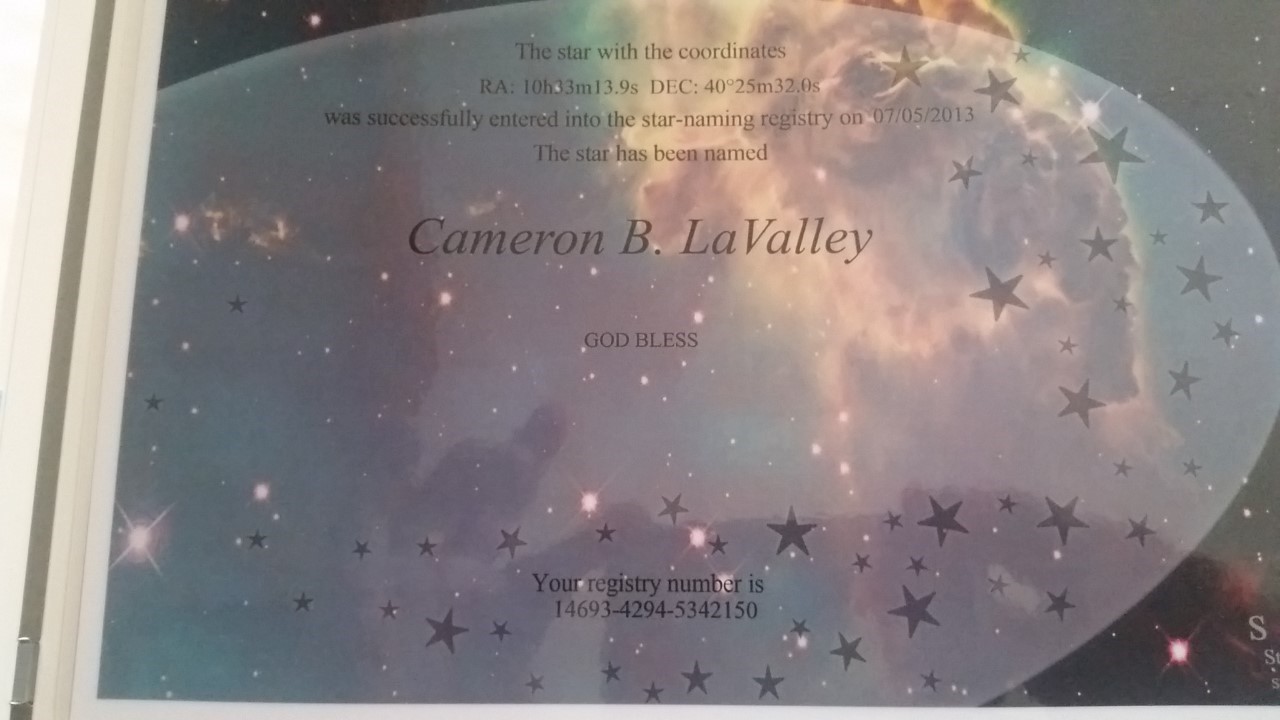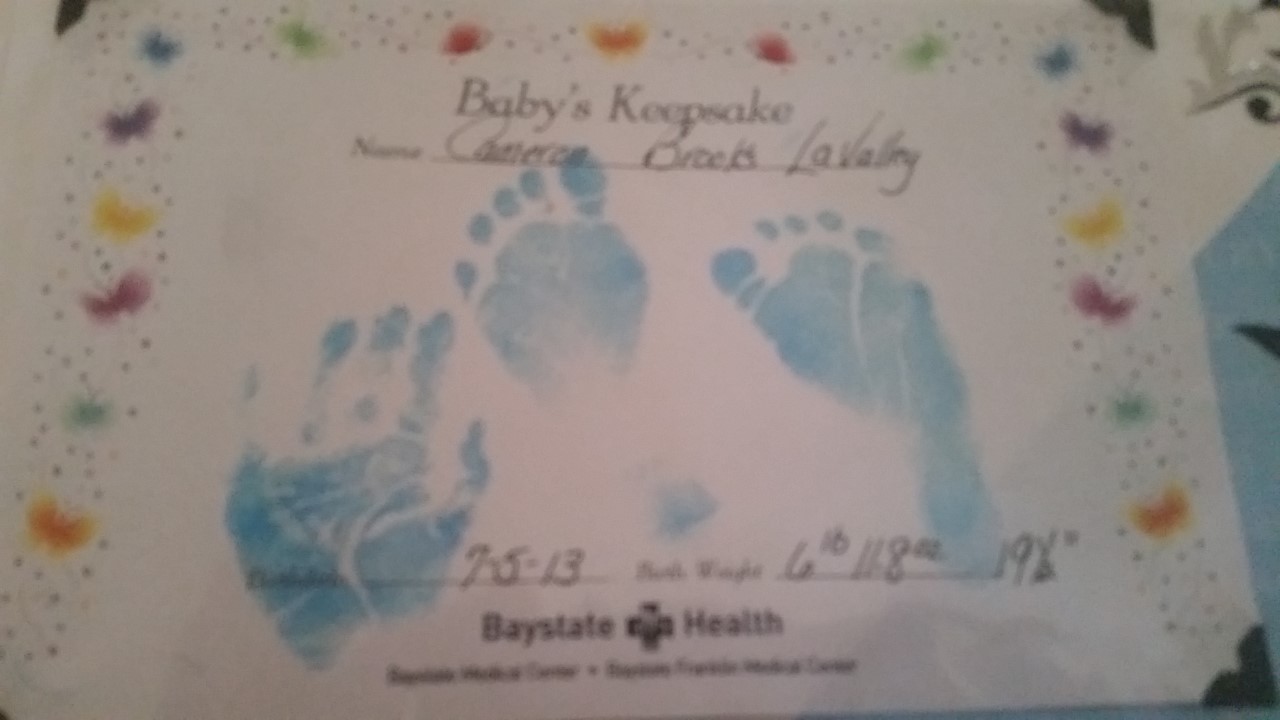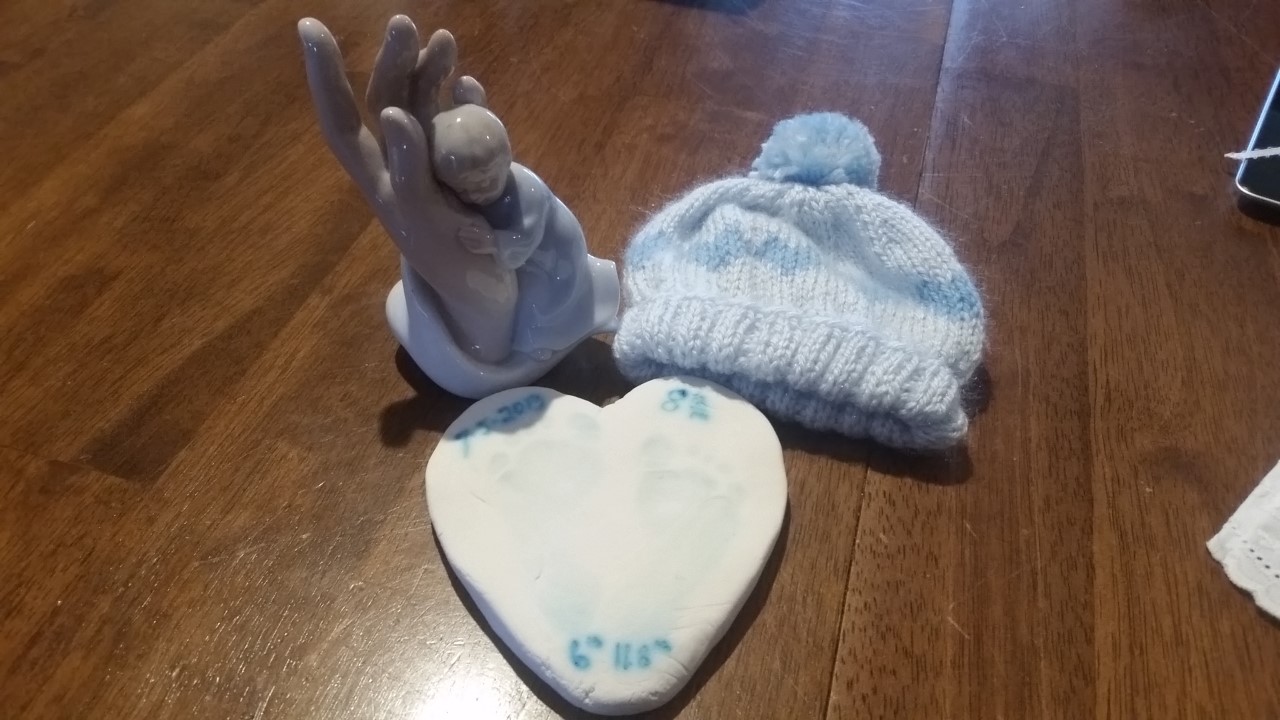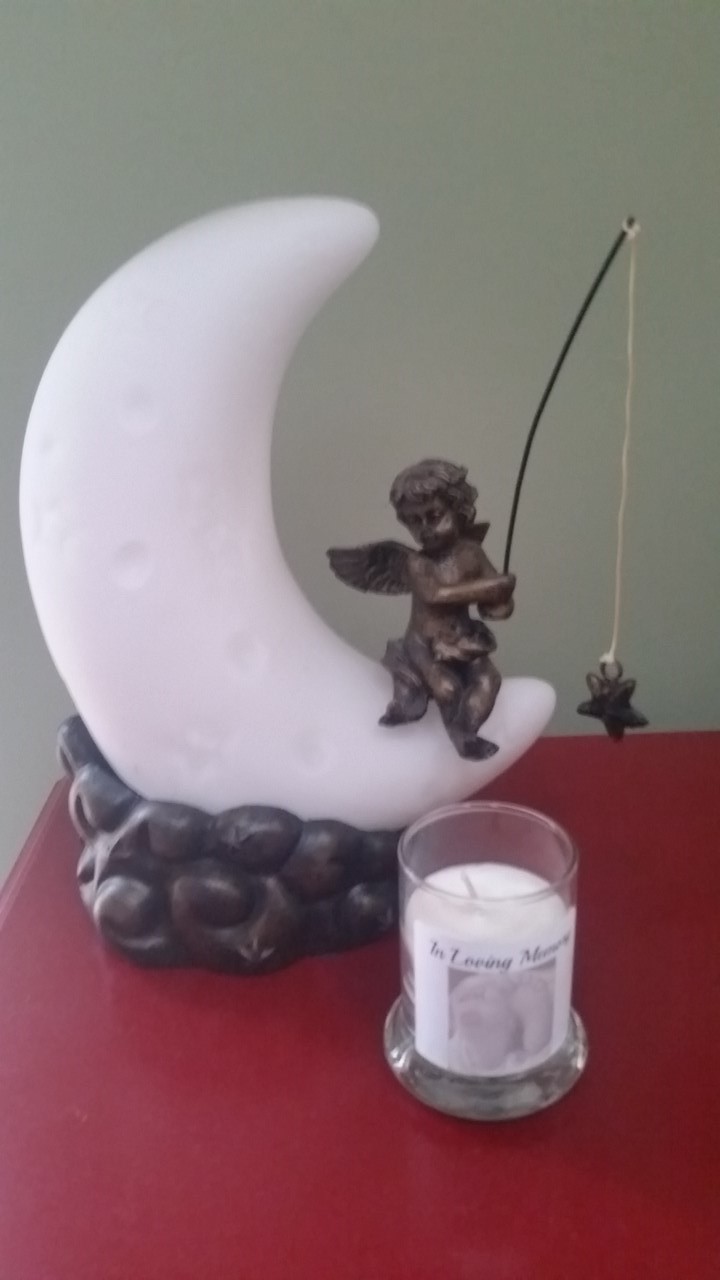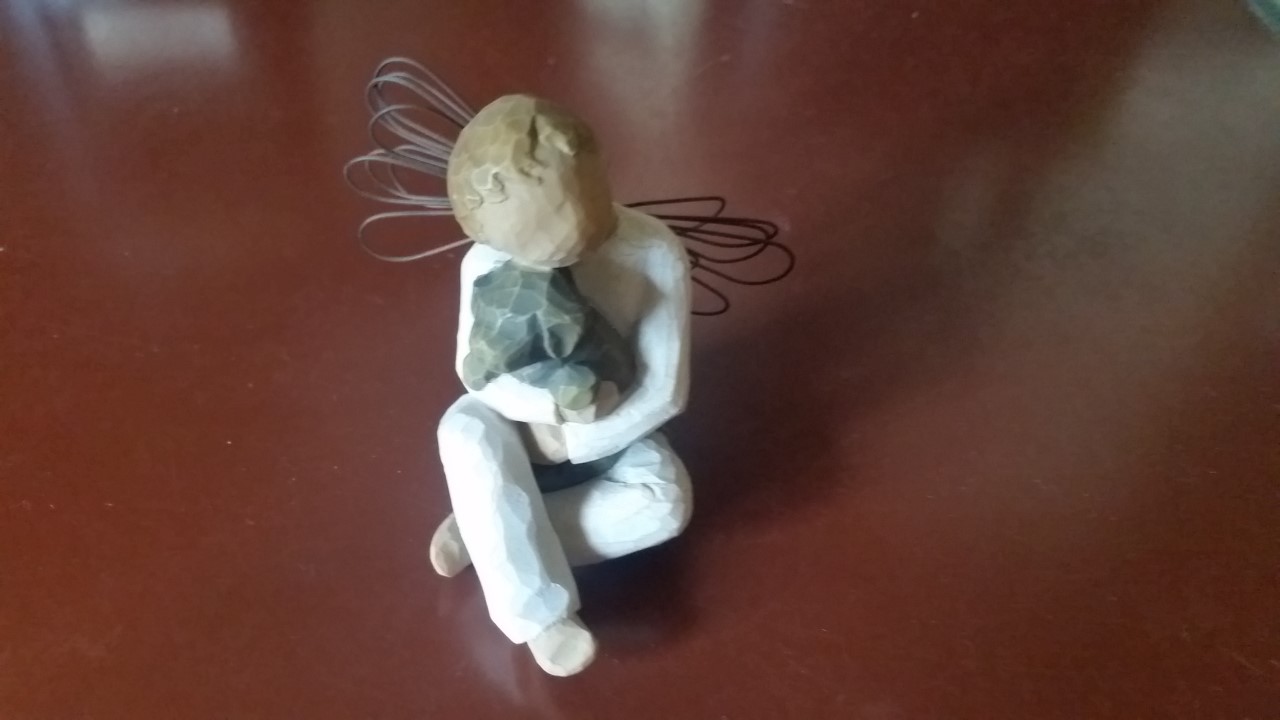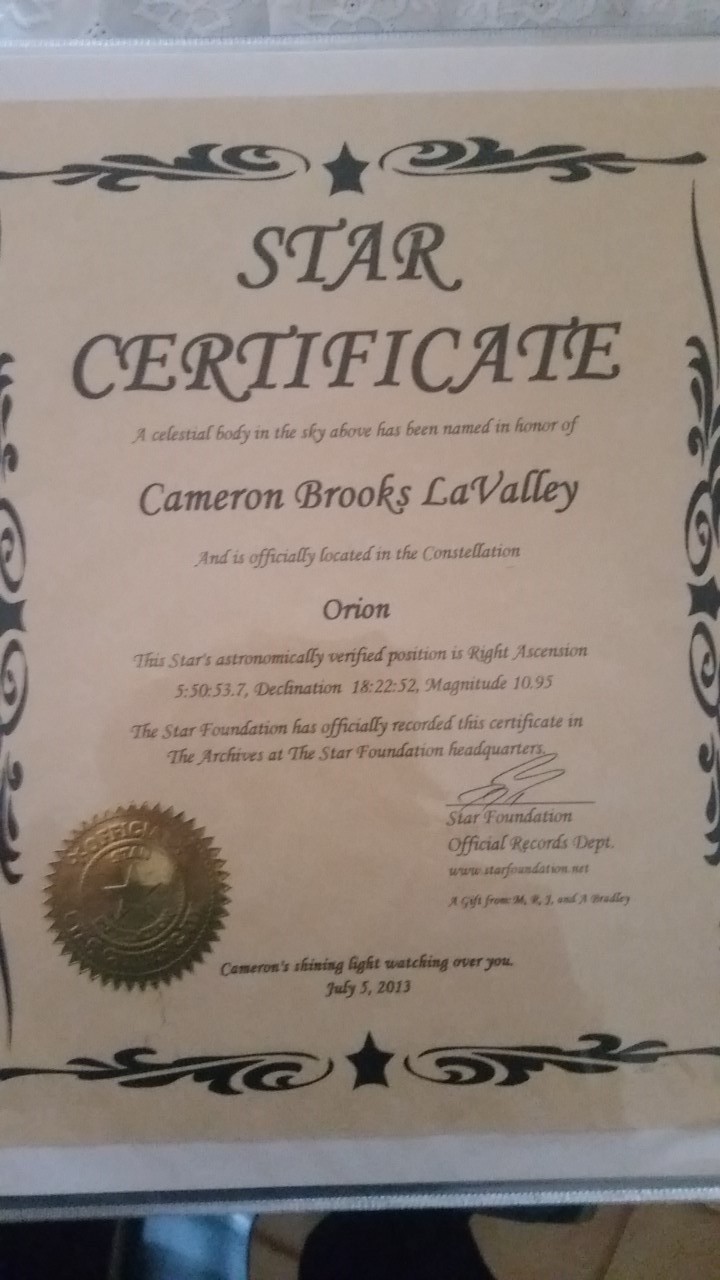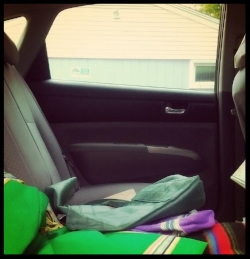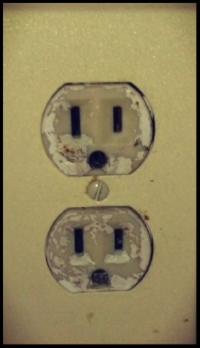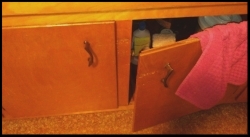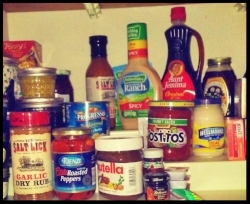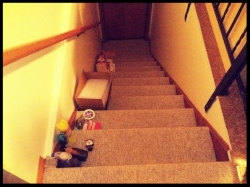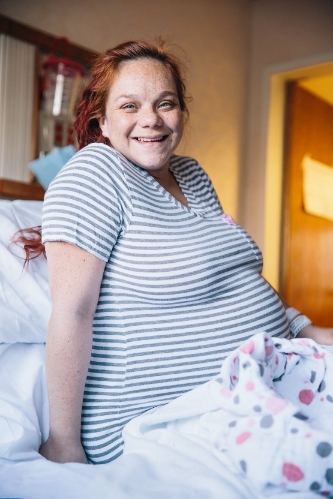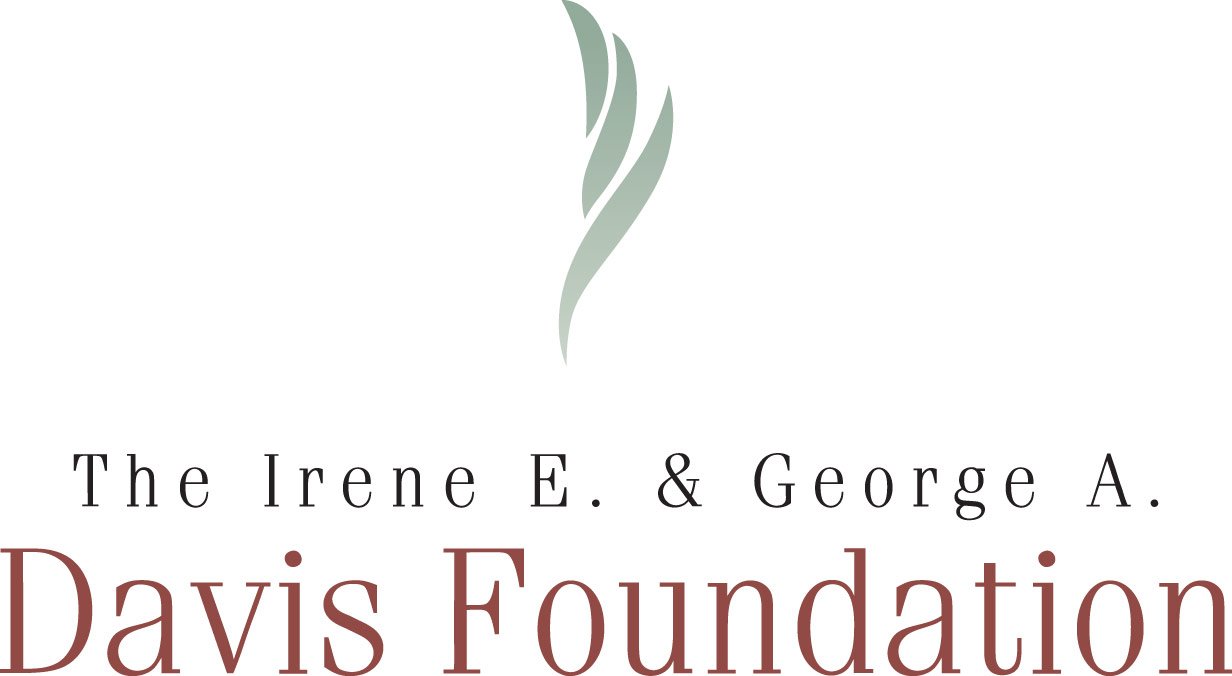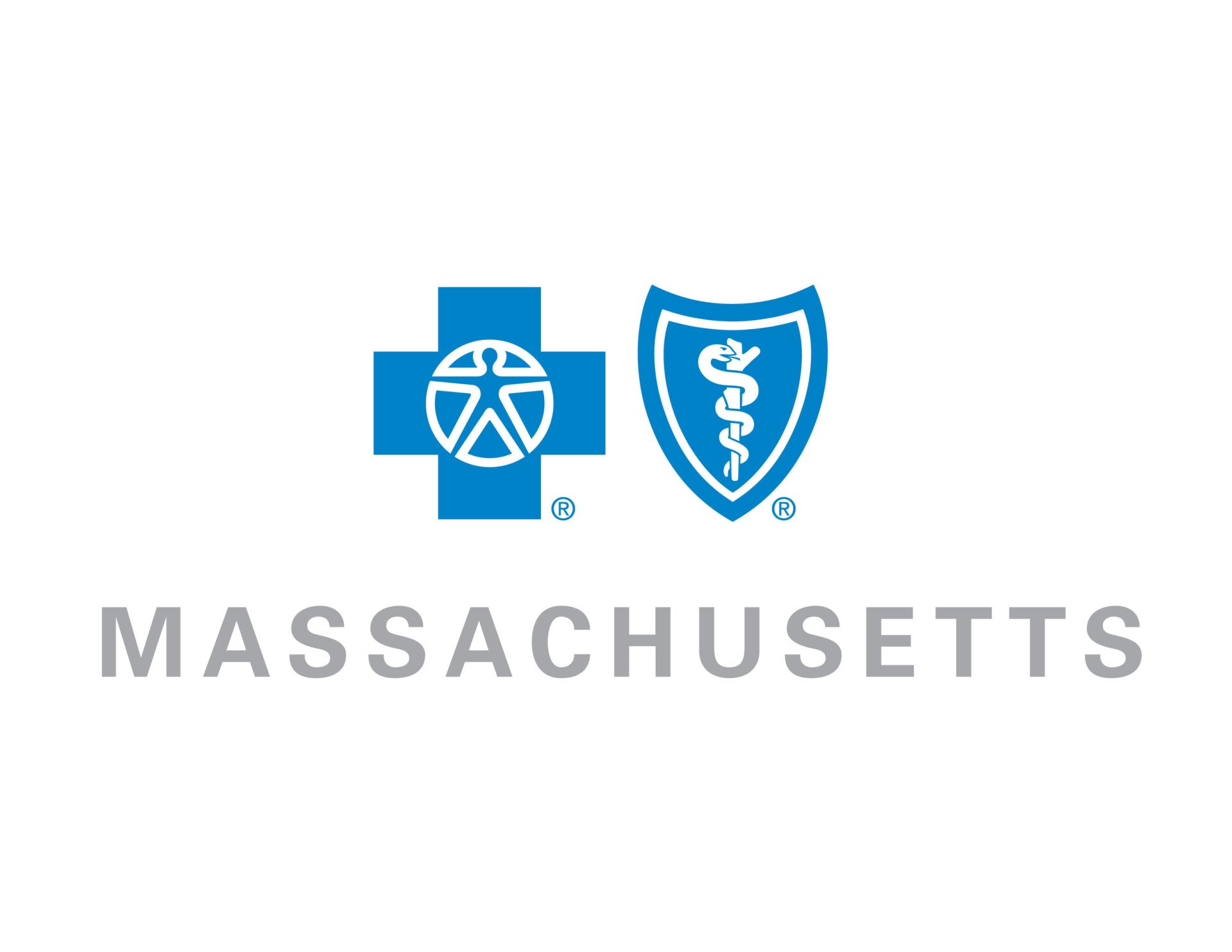Pieces of Healing: The Birth/Death of Kaia
By Anne Ellinger
Waiting
Is today your birthday, Kai or Kaia? Tomorrow? I'm scared of what labor might be like, yet I want it NOW! I've been holding my breath since two weeks before my due date, and now it's nearly two weeks after. All night part of me is tense, waiting, expecting. Now? Now? I awaken at midnight, 1:00, 3:30, 4:00, full moonlight pouring onto the bed. I stumble to the bathroom. Maybe standing up will break my waters? Nothing. Full moon, are you talking to my womb, whispering to this child, tugging sweetly on the waters? "Come out...come out...
From the outside, these last few weeks look like a wonderful break from my busy life. But on the inside, deep in my cells, my bones, my hormones, deep in mother history, I am a raging mother bear: "I WANT MY CHILD!" Every second screams out. Come on! Come on! Come on! Come on! Come on! Now? Now? Now? This impatience feels deeply biological.
Even though people have been gentle and sympathetic towards me, I feel very alone.
Death and Birth
This morning, I can't stop crying. Not the angry frustrated crying of the past few weeks, but a deeper despair, sobs that come and come without thoughts. I call the midwife in desperation. "Isn't there something we can do? Tomorrow I'm supposed to come in for a stress test -- can't we do it today?" Molly reassures me that the baby did wonderfully on the non-stress test a few days ago. Has the baby been moving this morning? No, but that's not unusual for the morning. She suggests I drink some juice and lie on my side for a while to feel for movements.
Two hours and three glasses of juice later, I still haven't felt the baby move. I'm not that concerned, because lately he or she has been quiet until evening and then kicking up a storm. But usually when I push firmly on an arm or a leg the little limb will shift out of the way, and today that's not happening. Molly suggests I come in, just to be sure. My partner Christopher and I set off on the 40 minute drive.
Molly greets us at the hospital. She finds a spare room with a doptone, the hand-held ultrasound that will let us hear the baby's heartbeat. I lie down on the table as I have done dozens of times before, ready to hear the familiar fast "whhhish, whhhish."
Molly keeps searching my belly with the doptone.
The silence is deafening.
I feel in a dream, my heart icy.
Molly finds a nurse to check again.
Christopher holds my hand.
"I don't believe it. I don't believe it," is all I say.
Christopher is crying.
I've cried so much in the last few weeks.
There are no tears left.
I feel dead.
We walk to an elevator, Christopher holding one of my hands and the nurse holding the other. Another room, another ultrasound machine, this time with visuals, a doctor looks, he says "I'm sorry, your baby is dead, There's the chest cavity, you can see -- no heartbeat."
I'm dazed, leaden. We're brought to a delivery room. The nurse explains what will happen: she'll insert a prostoglandin gel tonight to soften my cervix, and around 7am tomorrow they'll start me on intravenous pitocin to induce labor. No, they won't do a cesarean unless absolutely necessary -- I'll have enough to recover from without the additional burden of surgery.
"You'll want to spend time with your baby -- hold and talk to him or her.
We will? The idea stabs my heart.
But this nurse has been wonderful, so loving and genuine and gentle.
I trust her knowledge.
"Oh yes" she says. "It really does help to say goodbye.
Christopher phones our labor-support team. I hold him tight as he shakes and tells the news: "The baby's dead." Two friends offer to phone everyone on our birth announcement list --a heroic task. We're grateful. Just this morning my parents had decided to drive to Boston to await the birth. I phone their hotel every fifteen minutes. At last they've arrived and my father answers the phone. "Dad, the baby's dead..." I hear my mother cry out in the background.
We're exhausted. I'm still numb. Bedtime, Christopher and I cling together on the narrow labor bed. The nurses put up the bed railings around us, saying, "Here, you might be more comfortable." I awaken around 3am and finally cry.
Morning. Molly is there, even though this is her day off. "I want to be here. All I'm going to do today is think about you, anyway," she tells us. The doctor from yesterday says he'll do the delivery, even though it's not his day to work either. I appreciate his sad, gentle manner. My parents arrive. Months ago we had invited three friends to be at my labor. Now they arrive, bringing several other close friends of ours who want support our labor team. I feel cushioned with love.
Yet soon I hardly notice who is there, because the pitocin has my contractions rolling right along. For months I've been wondering and fearing and preparing for labor, and at last I'm just doing it. I can't even think about my baby being dead, because the sensations command all my attention. It takes every ounce of concentration to relax, relax my feet, my legs, my arms, my belly, breathe, notice any tension, relax. The contractions fascinate me. They come on so subtly, from nowhere and everywhere at once, yet before I know it they're as intense as any sensation I've ever felt, I can't believe it, I watch my fear, afraid the sensations will, grow even sharper...and then they mysteriously evaporate.
Molly said whenever I've had enough I can have an epidural to make me numb from the waist down. No point in suffering -- don't need to protect the baby. But when do I want it? I want to experience this miracle called labor, to satisfy my curiosity and to know that I can deal with it. Yet I don't want needless pain.
Hours go by, and they feel like minutes. Friends are in and out of the room but I hardly notice. I move from the bed to the bathtub, dragging my pitocin tubes with me. The contractions now are like jagged peaks. I ride up, up, up the sharp pain -- will it ever stop? Friends spread wash cloths across my breasts and belly and baste the cloths with warm water. It feels so good. Is it true my baby is dead? I can't let in that reality at all. Around Ipm I decide I've had enough. I know what labor feels like. And dealing with all this pain, there's no way I can be present emotionally with my baby's death -- I could be giving birth to a truck and it wouldn't matter to me. I want to aware of what's in my heart.
I get the epidural. Within minutes my insides are bathed in numbness, and the contractions are reduced to a mild tightening on the surface of my belly. The relief is blissful. Is this what it feels like to die? Released from pain, I'm suddenly exhausted and melt into sleep. Molly comes in to check my dilation. "Can't I sleep a little more?" Iplead. "Sleep any more and you'll miss the birth! The head is just inches from crowning. It's time to push! Now I'm awake, and terrified.
O god, if I push
the baby will come out
and be dead
and what if the baby's deformed
or decomposed
and when I see my baby's really dead
my heart will
break
break
break
"You don't need to push until you're ready," Molly says. "Take all the time you need." I shake and cry, and cry and shake, friends close around me. After a long while, miraculously, I do feel ready.
Pushing is almost fun. All this effort from the waist up, and nothingness from the waist down. The doctor and midwife cheer me on. The baby is out. A putrid smell fills the room. The doctor says gently, "The smell is from infection after death."
My baby girl is wrapped in a white blanket with a little white cap on her head. Loving hands place her on my chest. I'm astonished -- instead of searing grief, a deep joyful peace fills my heart! "She's beautiful! She's so beautiful!" I keep saying. I know she's dead -- it's not that I'm deluding myself. But the sense of fullness I feel upon holding my baby is overwhelming. I can't believe I'm feeling this serenity, so opposite of what I thought I would feel. I gaze at her -- bright red lips, a chin like mine, long toes like mine, my god, it's really my child...
Everyone takes turns holding her. Many tears. I'm grateful so many of my loved ones are here, seeing and holding my baby, making her real, she who will disappear so soon. Christopher and I spend some time alone with her, before we hand her for the last time to the nurse. The doctor keeps taking my temperature -- I have a fever that climbs quickly to 102 degrees. He puts me on intravenous antibiotics. Christopher goes out to say goodbye to all those who had been at the birth. I fall immediately asleep. When I awake we sadly leave our wonderful nurses and I'm wheeled from the labor and delivery wing to another floor. I nearly pass out in the wheelchair. Christopher sleeps in a cot next to me. The birth/death day is over.
Limbo Time
Christopher and I spend the next five days in the hospital as my body fights a strep infection, the kind that used to kill women in childbirth. I'm relieved to be in the hospital. I couldn't bear to be home and face life-as-usual without my baby. The hospital is a no-where land, a limbo time, a chance to fall apart as much as I need.
Our friends move in during the days, and the hospital wing becomes our community center. Betsy is there from morning till night, coordinating our visitors. My parents visit every morning. Dakota comes every afternoon, letting her kids romp in the playroom down the hall. Many people offer food, counseling, massage. When friends aren't seeing us they're visiting with each other, getting more time to talk than they have in years! This death brings us all together.
My strength slowly returns. At first I need help just to walk to the bathroom. The third night is misery, my hot swollen breasts covered with ice packs, my uterus cramping intensely from medication to help it shrink. Christopher lies in the cot beside me, holding my hand as I cry. He attends to my every need. I'm glad we have so many visitors in the day, so he can get outside and talk and receive lots of attention. He and I need such different things. I can't stand more than one person at a time, can't stand to talk about anything but Kaia. I just want to sleep and cry.
On the fourth day my fever breaks, and by evening I'm straightening my room and strolling the halls. By the fifth day I have the strength, emotionally and physically, to go home.
Kaia's Ceremony
We've been home a week. All morning I've been crying. I don't want to do this funeral. I don't want to be around people. I don't want to see or touch Kaia's ashes. I don't want to let my baby go.
The ashes are in a clinical-looking white cardboard box, about eight inches square, with the label BABY GIRL, SLEPIAN. With dread and fascination I open it. The fistful of ashes are tied in a plastic bag. Rough and light-brown, with lots of bone chips, they look more like broken up concrete than like ashes. I pour them with numb detachment into a small ceramic box made by Christopher's beloved mother, who died when Christopher was fourteen years old.
We set off for Cranes Beach and arrive around 5pm. To my dismay, the beach is far from deserted! Couples lie greased on their towels, children shriek at the shoreline, groups play volleyball and dig sandcastles. We head across the sand to find an area less crowded. Friends arrive. Strong hugs, people seeing us for the first time since the death, relieved we're OK. We spread a scarf for the center of our circle. We place on it some lilies and mint brought by a friend, a photo book with pictures of Kaia, some of the many cards we have received, a Tibetan gong, and the dish with Kaia's ashes. We light a small torch pushed into the sand.
The only thing I know I want is to cry with other women. So we begin with the women and men in separate circles, about forty feet apart from each other. The men sing a simple chant Christopher leads. I motion the women to huddle close, and we put our arms around each other and cry. We sing some, echoing the men's chant, and cry some more. I wish we could do this for hours, but I'm aware the men are ready to move on, so the women and men join together in one big circle.
I'm shocked how many people are here on such short notice -- close to fifty. I feel grateful for every one. I feel the presence of all the mothers and babies, especially the women with whom I had shared the discomforts and anticipation of pregnancy. It hurts, but I'm glad they're here.
In the big circle, Christopher tells the story of the Kaia's birth, and others who were present add in. Songs and heartfelt comments from friends. But I feel frozen with hurt until one song finally pierces my shell: "So let her go/ she's a feather in the wind/ gone back to wherever life begins/ and for all the love we know/ she was only here on loan in flesh and bone/ so let her go..." The refrain of Betsy Rose's song goes deep into my heart. I don't want to let her go! Held by friends, I cry a torrent of tears, delicious, relieving. While I cry, Christopher passes around Kaia's photos and the clay vessel of her ashes. People cradle the ashes and cry over the pictures, saying hello and goodbye.
And now it's time.
Christopher and I take the ashes,
and step away from the group towards the sea.
Suddenly, I'm filled with the most unexpected joy!
Like the shock I felt when I first held Kaia!
I'm expecting grief,
and instead I receive deep peace.
I'm letting go.
As we step across the sand the sinking sun lights up the edges of a cloud with orange, and great streams of light, like God's fingers in a Renaissance painting, pour down towards the beach.Kaia! I laugh out loud. I suddenly feel so happy, so in love with Christopher, so touched with magic by the whole memorial.
To get to the sea we have to wade first through a little canal made by the tide. As I lift my skirt and stride in, I feel mythic. I'm crossing the Red Sea, stepping through a boundary after which I will never be the same. We reach the sea and dance with the ashes, taking turns flinging each fistful into the wind. "Kaia, we release you!" "Kaia, thank you for your gifts to us! We rinse the last ashes from the vessel and with our arms around each other turn back towards the group. Again, I laugh out loud! I thought we were utterly private. But when we turn, we see the whole group watching us, standing with their arms around each other, faces glowing from the sunset, crying, smiling, singing. A wave of love coming towards us. "Breathe!" I coach myself, and we walk grinning back to the circle. We close the ceremony by singing Kaia's name together three times, each time raising our joined hands above our heads, sending her spirit off.
Before we know it Christopher and I are alone in the car heading home, dazed and exhilarated. How did that service become so powerful? We feel the awe of tapping into something much larger than ourselves. We decide to go out to eat to talk it over, and sit cuddled and exultant in the restaurant like two shining newlyweds. The waitress would never guess we just came from our daughter's funeral!
A few days later, a friend slips a letter under our door: "Friends, I will never forget that evening on Cranes Beach. I came to it mourning a life I never knew, mourning a lost connection with Anne, and fearful for my own baby. I left with deep love and appreciation for a little girl who has helped me to celebrate life and the loving connections it brings and who has reminded me that every person, no matter how small, can have a deep impact on others. She has helped heal my terror of death and its finality. I will never again walk at Cranes Beach without thinking of your beautiful child and how she, and you, have deeply touched me.
Day After Day
The space around me is vibrating. Around my arms, chest, breasts, belly, in all the empty spaces where a baby would be, the emptiness shimmers and aches. The silence around me thunders in my ears. No baby's cries. Every molecule of bone and flesh was poised for one thing, and one thing only -- to mother this baby. How can the flesh let go?
Only through time and tears. I cry whenever I feel like it. It doesn't matter where: in a Mexican restaurant sharing hers d'oeuvres with friends; alone in the car on the way to a business appointment; at a barbecue, when I'm struck in the heart by the squeals of children running through the sprinkler. I know that the most important thing I can do is to let this pain pass through me whenever I feel it. I know this is how I will be healed. I remind myself that even though it's embarrassing, sharing my pain is not a burden to my friends. The pain they imagine for me is often more fierce than my actual experience, so when I cry around them they actually feel reassured. They see that the tears come and go, and life goes on. Sharing my pain gives them permission to share their pain too, and we all grow closer from it.
One day at a time. Don't think about how I'll deal with next month or next week or even tomorrow. My job is to heal. There's nothing more important for me to do than to take the best care of myself I can. My life is simple: one or two hours a day I set up specific times with friends when I can cry as hard as I like. The rest of the time I hang out, talk if I feel like it, sit by the pond, go shopping, watch videos. I don't feel like doing much. I contact some other mothers whose babies died. I read a book about recovering from stillbirth. I try to eat and sleep and exercise so I don't turn grief into sickness. I wait for the days to go by.
I want to wear a giant sign around my neck: BE NICE TO ME! MY BABY JUST DIED! I can't stand being around people who don't know I'm dealing with this momentous loss! The cashier at the grocery store. The couple down the beach, swinging their little girl between them. They all think I'm an ordinary woman going about her ordinary day. They don't feel the scream beneath the surface, the heart rubbed raw. I hate my pain being invisible. I can't stand being around people who don't know.
I can't stand everyone knowing. Pregnancy is so goddam public, everyone who has seen me in the last five months knows there should be a baby in my arms. Where's the baby? Pregnancy is public, yet this pain is as personal as the cells in my own body. I can't stand it. I walk down to the pond at the end of my street to draw in some comfort from the ducks and the quiet waters. I imagine the eyes of my neighbors, pitying, concerned. "There's that girl whose baby just died. Poor thing!" I feel conspicuous. I dread when we'll first meet, their gooey eyes, their awkward silence. I dread hearing again, "Don't worry, you'll have another one," and other tactless things people say when trying to comfort but not knowing how.
Down at the pond I see a friend of a friend feeding the ducks. My heart thumps as I approach. Does she know yet? Now she sees me, and I can see it in her eyes, yes, somehow she has heard the news through the speedy grapevine. We hug. There are tears in her eyes. Now what do I do? I don't feel like telling the story for the hundredth time. Yet all this person probably knows is that my baby died. She doesn't know why or how, or how I'm dealing with it. I wish I had a card with the whole saga written up. "Here, read this, see you later.” But I know information is not the essence of what she needs. She needs to be with me, to sense my pain and my intactness, to express in the silence her own pain and fear and love. Oh, but it's work. Telling each person is grueling, but afterwards I'm relieved. Another person who knows. One less person to tell. Once again, to my surprise, after my initial resistance I feel nourished by the recounting, by sharing the pain and letting in her love. I return from the pond a little peaceful.
Could I have done anything to keep her alive? Maybe if I hadn't sat so much at the
computer... If only I had charted her kicking more closely ... Maybe if I had asked to be induced... I let these thoughts pass harmlessly through me, like the annoying but innocent buzz of a fly. There's suffering enough, no need to add to it. We've been over the evidence with the doctor and midwife. Kaia gave no advance clue. There's no medical explanation. There is nothing anyone should have done differently.
Why did my baby die? Was it a meaningless accident in a meaningless world? Was it Kaia's choice, to leave just in the nick of time? Were we being punished for not wanting her badly enough? Were we divinely chosen to receive the special gift of her death? More sharply than ever, I see there is no way to know the "true" meaning of anything. There is no meaning to her death, except whatever meaning I choose. For the time being I choose that she loved me and that leaving is what she wanted. Not because I believe it's "true", but because that is what gives me greatest comfort. I'm glad there's no medical explanation; it makes it easier to believe the spiritual one.
Everything in my daily life shouts "WHERE'S THE BABY?" Here's the chair where I was going to nurse her. Here's my neighbor who had offered to babysit. Here's my favorite greasy spoon diner, where I looked forward showing her off to the waitress. I refuse to avoid what's painful. What am I going to do -- hide in my room? The hardest part is being around the other new morns in my neighborhood. How I had fantasized the hours I'd spend with them, nursing our babes together, comparing joys and tribulations! Now there is this painful awkwardness between us, jealousy and guilt, fear and sorrow. Deliberately I go visit them all, hold their babies, ask to hear their motherhood stories, and cry about Kaia with them. The opportunity of being new moms together is forever gone, and we mourn that together. Loosing Kaia is bad enough -- I'm determined not to lose the friendships, too.
Sympathy cards come pouring in. Christopher and I savor every word, even the dumb Hallmark ones. Each card brings relief -- ah, someone else who knows, someone else who shares the sadness. As weeks go by and the mail continues, we feel compelled to let people know how much their cards matter. Although we know no one is expecting a reply we send a letter to over 120 people.
Many of you expressed pain at being powerless to lift the burden of sorrow from us. Yes, the grieving and healing is ours to do; But it's not true that you are powerless. The oceans of love and concern we received transformed our experience of Kaia's death. We feel deep loss, but at the same time we feel magically enriched cradled in a community of caring more vast than we ever imagined...
It feels good to give back to those who have given to us. Each time someone is moved by Kaia's death it makes her existence feel more meaningful. When she touched so many, who are we to say she didn't live a complete life? I'm amazed by the expanding ripples of her influence. I suspect there must be hundreds of strangers I will never meet who have heard of Kaia. So much for the self-deprecating notion many of us carry stubbornly in our heads: “I don't really matter." Each of us touch more lives than we ever dream of, and Kaia is proof.
Christopher and I try hard to be patient with each other. We need such different things these days! He's engrossed with work, busy writing his book, ready to move on from this death. While for me, as time goes on my grief comes up even sharper. Though he's always kind, I can tell he's bored my pain. I'm hurt and angry. Why isn't he grieving like I am? It's not fair! How come he gets to have his baby -- his book -- and mine's gone! Once I'm reassured that he's not just avoiding feelings (to emerge later as ulcers?) I have to accept that he just experiences this death differently from me. Kaia didn't live inside him for 42 weeks, she lived in me. I cry with Christopher often, but I try to get most of my support from other women.
For nine months I've been anticipating becoming a parent, imagining everything in my life changing. Suddenly time has jumped back a year, like the needle of a phonograph skipping back just when it was about to move to the next song. I feel profoundly disoriented. I'm not pregnant, and there's no child. I remind myself that time did not skip. I'm a parent right now -- I'm just a parent of someone who died, and that's a different challenge. With a friend's help, I arrange a small gathering of mothers. We cuddle on the blue carpet of what was Kaia's room, light a candle, and affirm my motherhood. "Children are our teachers. You're certainly learning from yours, just as I'm learning from mine!" "Who knows, in the future I might also have to face the death of my child. You just sped into it. Instead of feeling like time moved backwards, you could consider that it fast-forwarded!" I feel nourished by being one of the moms. Most new mothers are asked every day about their children. "He's pooping a lot today." She had me up half the night!" I can't talk about diapers or sleep, but I decide to coach my friends to ask me, "What are you learning from Kaia these days?"
How do I have a relationship with a dead person? I've never been this close to a dead person before. I will never know Kaia the infant, toddler, child, adolescent, grown woman. That is the Kaia I grieve. But Kaia the spirit, whose life touched mine, will always be with me. What do I mean by that? I don't know, but I feel it's true. I talk to her. I let her talk to me. I realize I need another way to feel connected to her besides feeling my grief. I can feel myself caressing the pain, milking it as proof that Kaia was real, our bond was real. But after I die, I don't want the thought of me to fill my friends with pain -- I want the thought of me to make them feel loved and happy. I'm sure that's what Kaia would have wanted, too.
It would help to have something visible, something in the physical world which can represent my relationship with this invisible child. I imagine a ring. And I find the perfect one in the first store I try, a smoky round moonstone flanked by crescent moons of silver, simple and magical. Just as a wedding ring makes everlasting love visible to the world, my ring will show the world that I am a mother, and my child is always with me. I touch the ring a lot, and it brings me a surprising amount of comfort.
Going On
Two months after Kaia's death. Christopher and I and our housemates finally pack away the baby clothes and put the crib in the basement. I tried to do this a few weeks ago, but ended up sitting on the floor crying in my friend's arms, telling her how I had marveled at each tiny soft t-shirt and jumpsuit, imagining my baby in them -- my baby! But today I'm suddenly ready. Goodbye baby clothes. Packing up the room I feel sad but relaxed.
By now I've heard dozens of stories of other dead babies. Almost ever person I talk to knows someone who had a stillbirth. Why is this kept so hidden? Why did I think stillbirths only happen to the malnourished, to those without medical care? The myth is that if you eat right, exercise, and get good care then your baby will be fine -- as if life and death were so under our control! I read the statistics: stillbirths are 16 out of 1000 in the U.S. That's almost 2 in 100! But in our death-denying culture, you would think stillbirths ended with the pioneers.
I keep thinking about the women in my pre-natal exercise class. By now most of them must be attending the post-partum class, carting rosy-cheeked infants with them. I feel bad just disappearing, as if women whose babies die fall off the face of the earth, but what should I do? I call the office manager. She's so pleased to hear from me! Yes, most women whose babies die never re-contact the Center. She knows of two other women who disappeared from classes after their babies died. Would I like to contact them? I'm nervous, but I do. The three of us have a wonderful time over lunch, comparing our recoveries and talking about how deserted we felt by the Center. Later we attend a staff meeting at the Center, share our stories, and suggest ways they could reach out to folks like us. I feel healed from this work -- completing what feels unfinished, giving back, helping others who may go through similar loss.
I used to fantasize about my greatest fears for the future. How will I ever survive if
Christopher dies? What if I get a debilitating illness -- could I manage chronic pain? I acted as if practicing my pain would make me better prepared! Now, having lived through a pregnant mother's worst fear, I see the futility of such practice. When something happens, you deal, that's all, because you have no choice. In this crisis, I've discovered resources within me and around me I never knew I had. Whatever happens in the future, I trust the same will happen. I'Il deal. I can let my fearful fantasies go.
My need to grieve is like being in a room with the radio on. The first week after Kaia's death the volume was turned up so high all I could do was listen to the radio. The next week, I could ignore the radio for a few minutes at a time -- hold a discussion, admire clouds and flowers -- but the radio's chatter was always demanding attention. Weeks went by, and it turned into background hum, more like an air conditioner, always present but easy to tune out. A whole hour could go by without me noticing the gentle roar. And then one week I noticed with a start that the radio was still in the room, but most of the time I didn't even notice it was there.
I feel blessed. I feel connected with every woman who ever grieved a child, the tens of thousands who mourn with me right now, the mothers in war-ravaged Eritrea, the mothers in Armenia who dug babies from the earthquake's rubble, my great great grandmothers in the Russian stadtls, and the hundreds of women in US hospitals this very day who are holding dead newborns in their arms. When you risk being a vehicle for life you may also be a vehicle for death, for they are inseparable, and the power of each is the same power. We women do this, and have done so since the species began. Our hearts break, and we are strong enough to go on. And I, who have been protected all my life from misfortune, have joined the ranks of the unbearably human. In one humbling blow the security of my life's plans was ripped from me, and with it the illusion of control. I stand naked and proud, just human, like all of us, with nothing to do but go on.
Thank you, Kaia, for this gift.
All responses welcome!
Anne Ellinger
anne.ellinger@gmail.com
written September 1990
